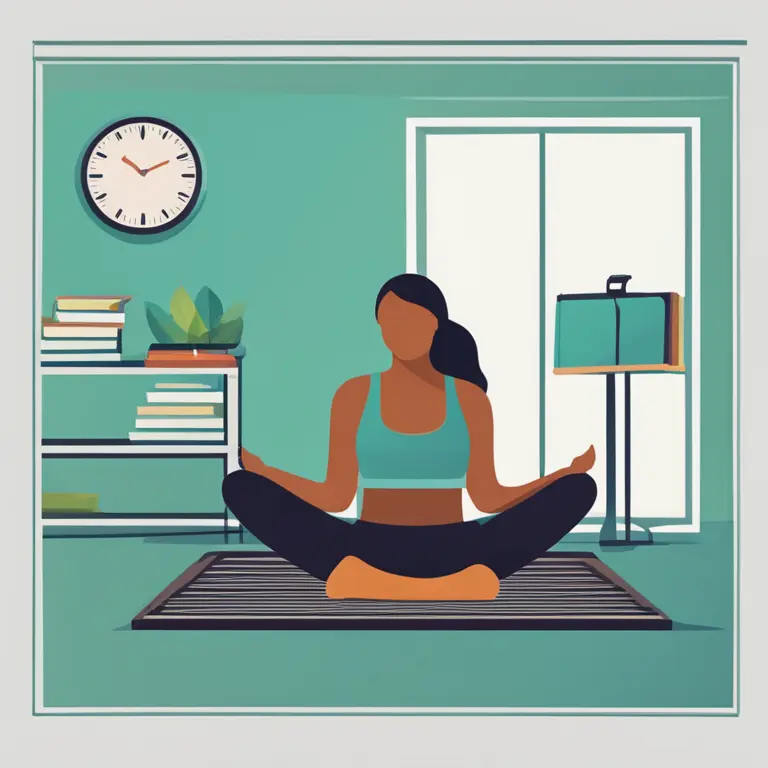
Meditation as a Remedy for Anxiety
Discover how regular meditation practice can offer a pathway toward managing and reducing anxiety in modern life.
article by Hina Kurosawa
Introduction to Meditation and Anxiety
Meditation has long been heralded as a practice that brings about mental clarity and emotional calmness. In recent years, its popularity has grown, not just as a spiritual tool, but also as a method for managing stress and anxiety. With an ongoing digital revolution and a world brimming with constant stimuli, finding tranquility is more important than ever. This article examines the potential of meditation to serve as a curative practice for anxiety, supported by modern research and understanding.

The Science Behind Meditation
Scientific investigations into meditation have gained momentum, with numerous studies confirming its positive effects on brain function and mental health. Neuroimaging reveals that meditation can lead to changes in the brain regions associated with anxiety, including the amygdala and prefrontal cortex. By engaging in meditation, individuals may rewire their brain to reduce stress responses and increase resiliency to anxiety triggers. This understanding emphasizes meditation's potential as a therapeutic strategy for anxiety.

Meditation Techniques for Anxiety
Several meditation techniques exist, each with its nuances and potential benefits. Mindfulness meditation, for instance, encourages practitioners to focus on the present moment, reducing the rumination that can exacerbate anxiety. Guided meditations use visualization to promote relaxation and mental escape. Techniques such as these offer a toolbox for those suffering from anxiety to explore and find what best suits their individual needs.

The Regularity of Practice
The effectiveness of meditation in managing anxiety is closely linked to consistency. Regular practice is found to be more beneficial than sporadic sessions. Establishing a daily routine, even if it's for a brief period, can lead to long-term reductions in anxiety levels. As such, meditation is not a quick fix but a lifestyle change offering cumulative effects over time.

Integration with Conventional Treatments
While meditation can be a powerful tool, it is not a panacea for anxiety disorders. Experts recommend integrating meditation with other treatments such as cognitive-behavioral therapy (CBT) and medication when necessary. For many, meditation complements these approaches, enhancing overall outcomes and providing a holistic framework for tackling anxiety.
Accessibility and Learning Resources
The accessibility of meditation has improved with the advent of digital platforms and apps dedicated to mental wellness. Countless resources are available to guide beginners through the meditation process, making it an attainable practice for those seeking relief from anxiety. In this tech-savvy era, support from virtual meditation communities also helps individuals stay motivated and committed.
Personalized Meditation Experiences
Personalization is key when utilizing meditation to combat anxiety. Not every style or technique resonates with each individual. It's essential to explore and adapt meditation practices to one's unique circumstances and preferences. Tailoring the experience ensures a higher likelihood of adherence and a more enjoyable journey toward mental health.
Published: 1/14/2024
Modified: 1/15/2024
More predictions
Come back here soon to learn more about yourself and your future


Calming the Storm: Mindfulness Meditation for Anger
Discover how mindfulness meditation can be a powerful tool for anger management, promoting inner peace and emotional balance.


Easing Loneliness with Mindfulness Meditation
Explore how mindfulness meditation can provide solace and connection to alleviate the feelings of loneliness.


Easing Loneliness with Meditation
Discover how mindfulness meditation can provide solace and connection to mitigate feelings of loneliness, enhancing emotional and mental well-being.